* The sun is plasma, NOT a nuclear engine.
* Generals are again warning that America's youth are getting too fat and/or dumb to join the military.
* Jussie Smollett's woes compound as it turns out that his aunt, Kamalah Harris, along with Cory Booker, were the real impetus behind his phony hate-crime.
~~~~~~~~~~~~~~~~~~~~~~~~~~~~~~~~~~~~~~~
Bow Down!
I think he's a lot closer to the truth than even he knows.
~~~~~~~~~~~~~~~~~~~~~~~~~~~~~~~~~~~~~~~
Solar Barque
More and more, water is turning out to have played a major role in the construction of the Pyramids.
By the way, water turns out to have played a major, religious role in many ancient temples. The 'path of souls' between the pyramids at Teotihuacan, for example, was a reflecting pool, across which initiates would be ferried in gondolas by 'ferrymen'.
One of the temples in Peru was built near a (long since vanished) river which would be diverted to flow through channels beneath the temple, causing the entire edifice to roar with a 'voice of many waters'.
And then, of course, there's our own scriptures' passage relating the tale of Egyptus (a curious name for the time) having 'found' the (apparently antediluvian) land of Egypt while it was still under water. And how does one find land that's under water? Simple. Something protrudes upward through the water. Now, what might have protruded through the water in Egypt? Something 'pre-dynastic', as Matthew Sibson tells us in that video. And, if the land of Egypt was under water, that means that Egyptus must have been in a boat, and must have stayed in that boat until the water subsided. Otherwise, there would have been no point in having found the land of Egypt. So, once the water was gone, what would have become of her boat?
Now you're thinking, "No way would they have buried her boat!" Well, why did they bury THREE entire iterations of the Gobekli Tepe temple complex? And that a thousand years apart each! Clearly the ancients believed in burying sacred things in order to preserve them.
But I'm not even suggesting they buried Egyptus' boat. I'm suggesting that they reenacted the event is a sort of sacred pageant every century or so. After all, that was just the first of many buried boats to have been discovered near pyramids. In fact, the so-called Khufu boat was just one of two discovered together.
~~~~~~~~~~~~~~~~~~~~~~~~~~~~~~~~~~~~~~~
I'm going to have to say it again!
You just can't make this stuff up!
And, just in case you're wondering what video he's referring to, it's this one:
How's that food supply?
~~~~~~~~~~~~~~~~~~~~~~~~~~~~~~~~~~~~~~~
Speaking of which ...
Global cooling continues to increase rain. (Remember what a wet spring we had?)
~~~~~~~~~~~~~~~~~~~~~~~~~~~~~~~~~~~~~~~
Gods Galore!
Now, you may have noticed that today, Saturday, is Ptah's day even though I once said that it's Atum's day. What's going on here?
What's going on here is the same thing that has gone on before: Syncretism.
In spite of what experts say, syncretism is really just all about translation. It's pretty plain to see that this is what Paul is doing when he explains the concept of charity to the Corinthians. Remember, Corinth is actually a Greek city, about as Greek as you can get, in fact, but Rome rules the world now (or then), and Jews are living in Corinth. Latins are living in Corinth. It's all very metropolitan (prompting Paul to advise them, 'when in Rome, do as the Romans do.'), and 'multicultural'. And the Greeks who've become 'Jews', and the Jews who've become Greeks, and the Romans who've become confused, are struggling with the blending of the languages, and that's where this new word, charity, comes in. Now, mind you, charity exists nowhere in the Old Testament. The concept is there, but the word is not. And this is what Paul is explaining to the Corinthians. By the way, the Greek word for charity is what we call philanthropy, but neither word exists as such in either Hebrew or Aramaic, and that's the language of the religion Paul evangelizes. But, as Confucius said, "The beginning of wisdom is to call things by their proper name.", so, Paul, recognizing the value of a distinct term for the concept, fully embraces it, and defines it for them. And he does this because, just as with terms like Communism, Fascism, Capitalism, and Socialism, today, everyone was throwing it (and others) around with their own, personal definitions attached, so everyone is talking past each other, and confusion reigns. But the Lord's house is a house of order, so Paul tried to set everyone straight. What he did NOT do is shout them down as heretics, apostates, or idiots. And, as a result of Paul's efforts, we have still have charity even today, even though it is not a word which Christ ever uttered as far as we know. (Not that it really matters much, because we seem to have slipped right back into the same confusion Paul was originally faced with, but at least he tried.) (Hint: Pay close attention to what he say charity is NOT, and take him at his word instead of mentally interpreting his words into meaning what they don't mean, but with a cherry on top, or with feelings, or with magic fairy dust, or whatever.)
The point is that, as Paul also said, "If there is anything virtuous, lovely, or of good report or praiseworthy, we seek after these things." And charity certainly fits that description, so we 'incorporate' it. And we are not the first to do something like this. ALL previous civilizations have done the same.
The real reason we see so many gods in so many lands has less to do with paganism or superstition, and more to do with syncretism. And that has everything to do with the tower of Babel. Every region had their own scriptures, or perhaps, as in Finland, Norway, Slavic Europe, and others, only oral tradition. And, just as Joseph translated the Books of Mormon, Abraham, and Moses for us, their prophets translated their scriptures for them, into their languages, something the Book of Mormon even says in about as many words that God does for the many different peoples around the world. The Bön religion, for example, even still has a formal office for this person: Tertön
But the reason I bring this up is not just to explain why Egypt seems to have so many gods for the same things, or to dispel any silly notions that I'm promoting paganism, but to explain also why English presents such a challenge to so many people. The real problem is that, just as with the pantheons of these other lands, when one undertakes to learn English from a basis of, say, Chinese or Korean, one isn't really learning English, but rather a collection of languages, practically half the Indo-European family of languages, all at once, and all gathered behind the name, English.
Then, just to rub salt in the wound, throw in the great vowel shift. For no reason whatsoever.
So that's what I'm really doing: Following my example in Paul, who followed his example in Christ, pushing back the frontiers of division and confusion by showing how we're really all saying the same things, just in different words.
And it's those words, the way they've changed, where they came from, why they exist, that fascinates me so.
For example, did you know that all writing is a violation of the 2nd commandment?
All writing is based on celestial imagery. Take, for example, the ancient Sumerian symbol for star:
 You can literally see that it's an image of a star. That's what they're doing by writing, making a graven image of something in heaven above. And that's forbidden. Except to the priests, the authorized scribes.
You can literally see that it's an image of a star. That's what they're doing by writing, making a graven image of something in heaven above. And that's forbidden. Except to the priests, the authorized scribes.Too far-fetched? Well, then, how about our letter A? We turned it upside down. Originally, it was a cow's head. That's right, the very same golden (cow) calf that Aaron got in trouble for making.
Likewise the rest of our alphabet. That's why it was once forbidden for us mere mortals to write anything. It was the ancients' method of combatting 'fake news'. That's why Enoch, THE SCRIBE, told us that '[Gadreel] instructed mankind in writing with ink and paper, and thereby many sinned from eternity to eternity and until this day. For men were not created for such a purpose, to give confirmation to their good faith with pen and ink." (justifying their deeds, or, as we would say it today, to 'tell their truth'.) (In other words, to lie.)
But we all write today. In fact, we're encouraged to write now. And how all that came to be from a time when it was forbidden fascinates me.
And another thing!
Remember the other day when I said Tuesday was Amlodi's (Hamlet's) day? Did you think that was a bit strange?
Well, just consider that Amlodi was the most intelligent of them all, but was just playing dumb in order to escape their suspicion and their murderous wrath as he plotted his revenge. In other words, his foolishness was just the opposite. It was their wisdom which was actually foolishness. Or, as our scriptures say it, "the foolishness of God is wiser than men." And, "the natural man receiveth not the things of the Spirit of God: for they are foolishness unto him." And "For the wisdom of this world is foolishness with God. For it is written, He taketh the wise in their own craftiness." And ... just too many more to list. Look 'em up.
The point is that Amlodi is another retelling of the story of Christ, who regularly shut the mouths of those who thought, with their crafty wiles, to expose him a as a fool, only to have him completely stupify them with the simplicity of his argument.
"If David then call him Lord [father], how is he his [David's] son?" (How can Christ be both David's father and son?)
"And no man was able to answer him a word, neither durst any man from that day forth ask him any more questions."
You do remember me telling you about this 'gotcha' question, right?
I now use it, too.
~~~~~~~~~~~~~~~~~~~~~~~~~~~~~~~~~~~~~~~
From My Playlist
I was only just barely aware of music in 1967, so the song, Nights in White Satin, had little impact on me at the time. But, over time, it, and other songs from The Moody Blues, slowly began to register on my radar. In fact, it was almost certainly the Moody Blues who primed my musical tastes to receive Yes.
There were other concept album acts before them, but not quite like this. The Moody Blues didn't just produce songs; they produced entire albums, albums meant to be heard in their entirety, sort of as one, long song. Nothing was filler. Nothing was rushed. Nothing was someone else's (controversy notwithstanding). There weren't even gaps between the songs! And that's something prior, and even contemporary (like The Beatles' Sgt. Pepper's Lonely Hearts Club Band) concept albums didn't do, as far as I know. (But I'm certainly open to argument or correction here.)
The Moody Blues created comprehensive sight-sound concert shows that enveloped their audiences in unbroken auditory experiences. Other bands would adopt the same approach, arguably culminating in Pink Floyd's (in)famous The Wall (which not only blends one song into the next, but even the end of the album back into the beginning), but it was the Moody Blues who really popularized and perfected the concept, and, perhaps, nowhere so deftly as in their album, Days of Future Passed.
For that reason, I present today the Moody Blues albums that I grew up with rather than individual songs. Because they really need to be heard as their creators intended.
Again, only when you have the time and the speakers.
Days of Future Passed (1967)
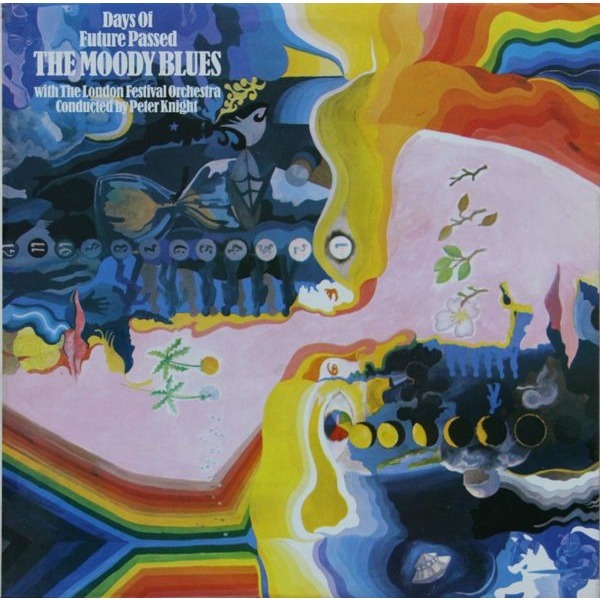
Personal favorites: (honestly, the whole thing, but, in particular ...)
The Day Begins (an overture)
The Afternoon Forever Afternoon
Evening: The Sunset / Twighlight Time
The Night: Nights in White Satin (I LOVE the Lament)
In Search of the Lost Chord (1968)
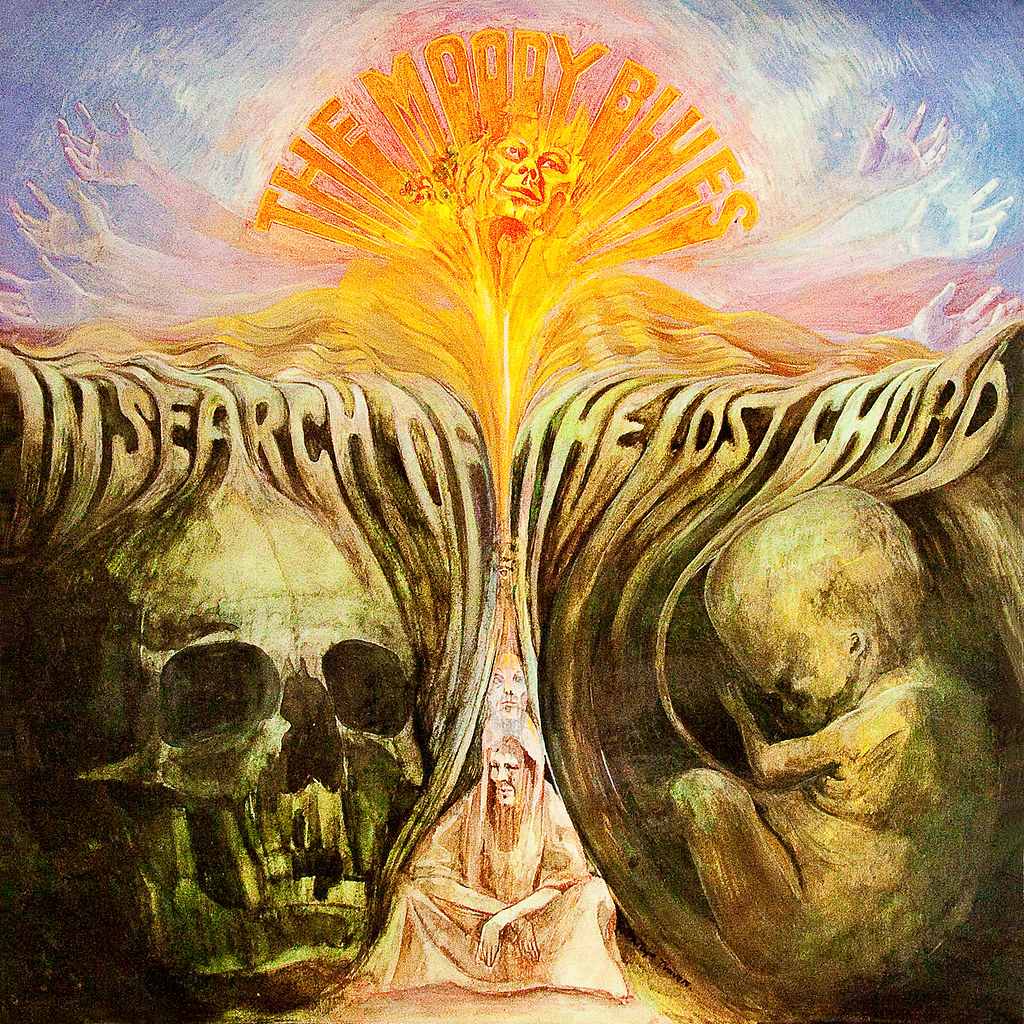
Personal favorites:
Ride My See-Saw
The Best Way To Travel
The Actor
Om
On the Threshhold of a Dream (1969)
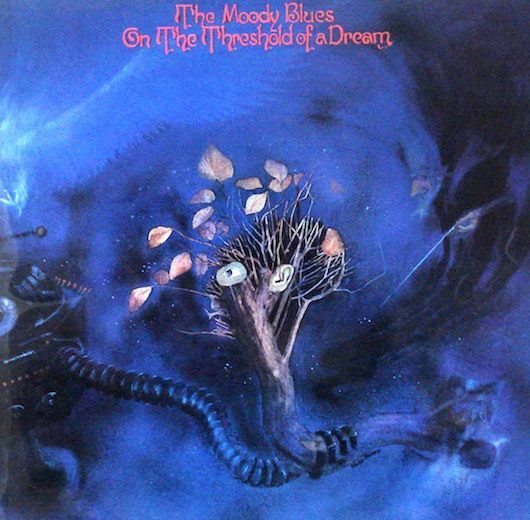
To Our Children's Children's Children (1969)
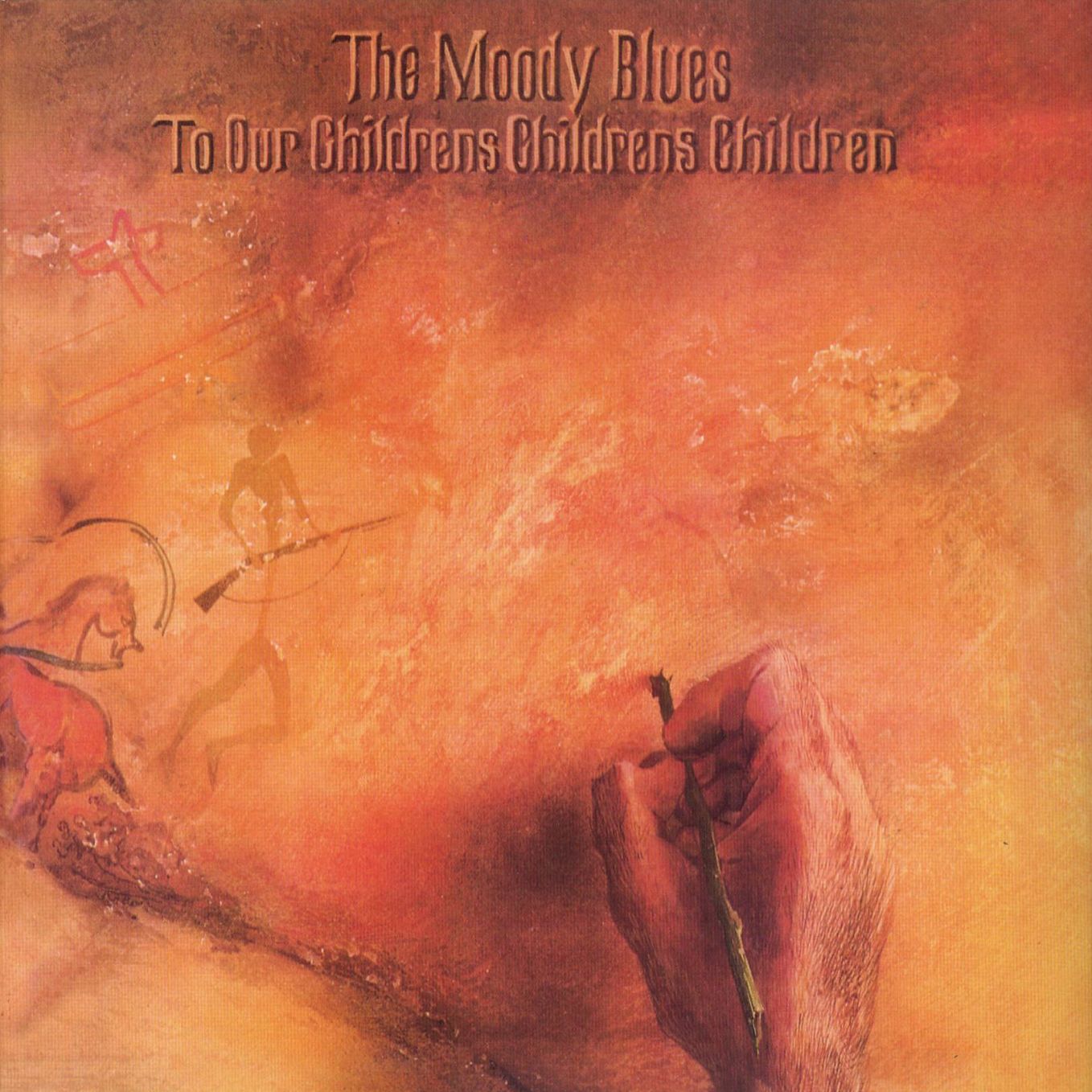
A Question of Balance (1970)
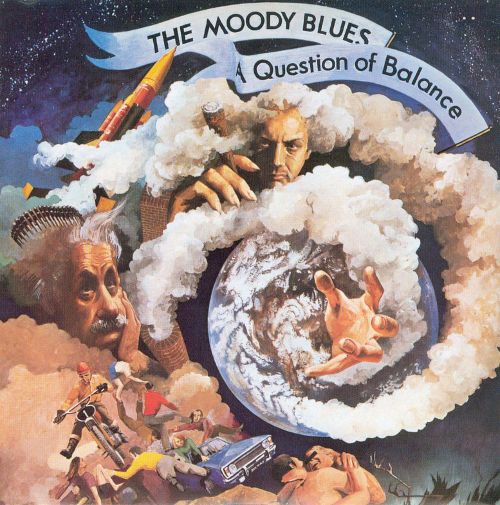
Personal favorites:
And the Tide Rushes In
Minstrel's Song
Melancholy Man
Every Good Boy Deserves Favour (1971)
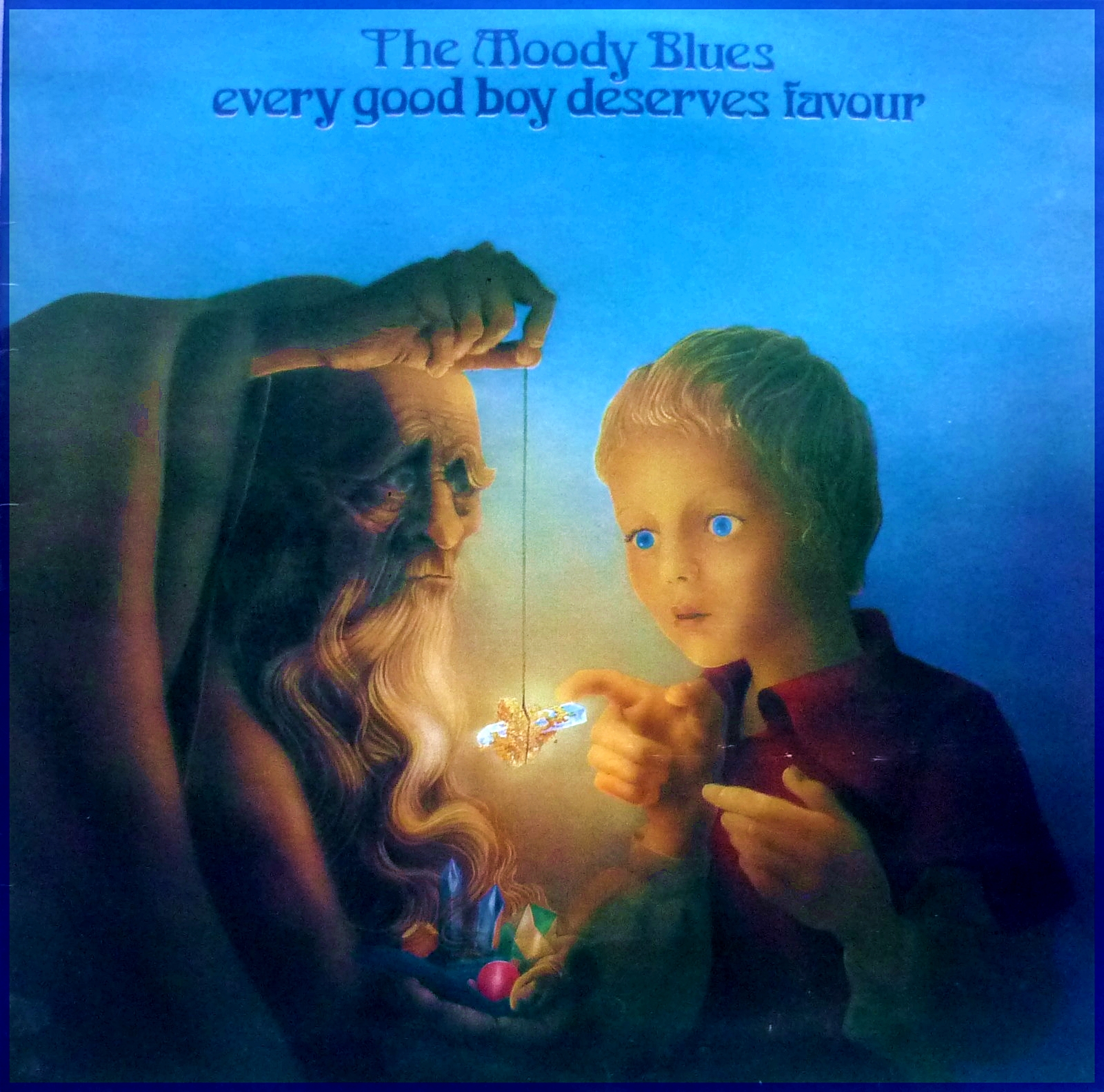
Personal favorites:
The Story in Your Eyes
Seventh Sojourn (1972)
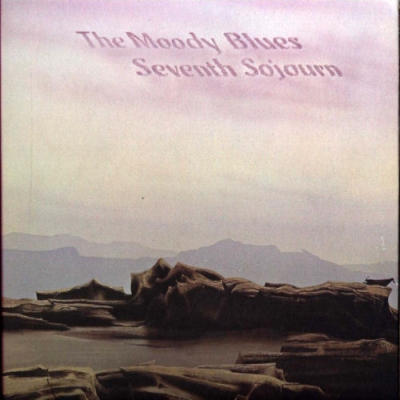
Long Distance Voyager (1981)

The Other Side of Life (1986)

Personal favorites:
Your Wildest Dreams
Sur la Mer (1988)
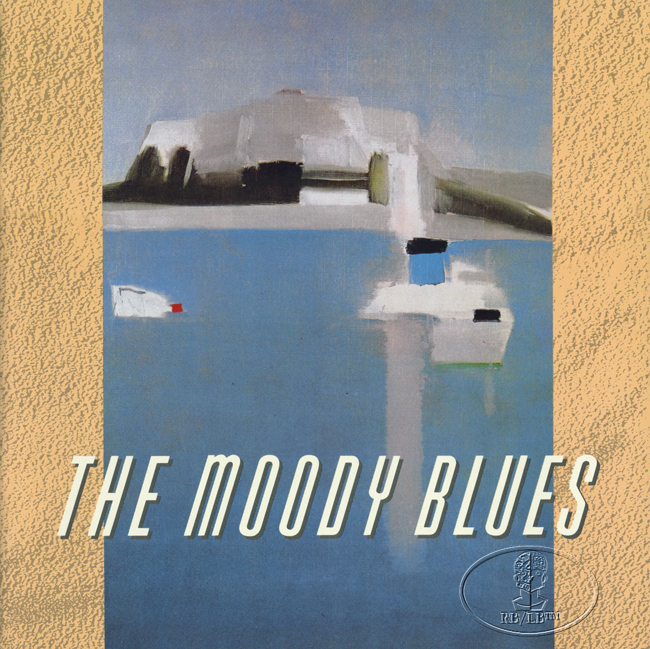
Personal favorites:
I Know You're Out There Somewhere
Frankly, The Moody Blues leave me scratching my head how The Beatles every attained such mythological status.
Maybe you noticed the time between their 7th and 8th albums: 9 years, the longest of any band I know of.
~~~~~~~~~~~~~~~~~~~~~~~~~~~~~~~~~~~~~~~
